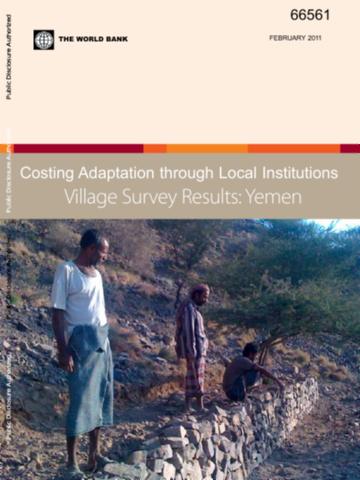Resource information
The objectives of the Costing Adaptation through Local Institutions (CALI) study were (a) to identify the costs of adaptation through local institutions, and (b) to investigate which institutions help households adapt to climate variability, which efforts and costs are needed to realize the adaptation options, and how they facilitate adaptation to climate variability. The study was carried out in Ethiopia, Mali, and Yemen. This report discusses the results for Yemen. In Yemen, village surveys were conducted in six villages and two expert workshops were organized to discuss the main framework of the study and to evaluate the draft results. The study assessed household vulnerability, analyzed the strategies households adopt to reduce the impacts of climate hazards, and evaluated the assistance households receive from different institutions. The analysis was based on household surveys, focus group discussions, and institutional stakeholder interviews. Vulnerability profiles, developed on the basis of field survey results, show that household vulnerability differs substantially between and within villages. The results show that the vulnerability and agro ecological potential in Yemen are related to rainfall, which is related to altitude. This study is a reflection of the insights that (a) poor, rural households are facing most of the climate variability- related hazards; (b) adaptation also has socioeconomic aspects; (c) understanding local adaptation processes is important for informing macro-policies; and (d) for prioritizing future adaptation, it is crucial to analyze historical adaptation strategies. The study involves an assessment of the adaptation options rural household pursue. The study also considers the differential access of various vulnerability groups, as well as the drivers for adopting particular strategies or constraints for not adopting other strategies. For this, households and institutional stakeholders were interviewed in six villages in Yemen, focus group discussions were organized, and experts were consulted.


